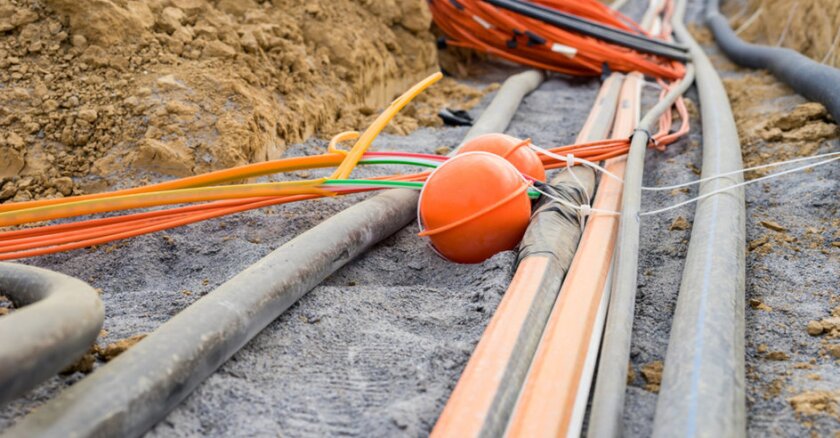Read our March magazine feature about digital equity and cities here!
FCC PROMOTES AFFORDABLE CONNECTIVITY PROGRAM WITH LOCAL PARTNERS
The Federal Communications Commission (FCC) has announced more than $640 million to support rural broadband efforts across 26 states, the commission has announced.
Officials expect the funding — which is being authorized through the Rural Digital Opportunity Fund — to bring new service to as many as 250,000 locations. This newest round of funding brings the total amount of broadband support through this mechanism up to $4.7 billion, touching nearly 300 carriers in 47 states with deployments that bring service to 2.7 million total locations.
This marks a continued bolstering of the FCC's efforts to support broadband deployment in rural America. Earlier this year, the commission also created the Rural Broadband Accountability Plan (RBAP), which broadly speaking, works to monitor and ensure compliance for the work being done by the Rural Digital Opportunity Fund and other related efforts. The RBAP seeks to accomplish this through enhancing audit and verification procedures that already exist, doing so by raising the number of them and other measures.
This funding and accountability work is part of a larger digital inclusion expansion happening at the federal level through the FCC. Other measures include increased efforts to team with a network of local partners nationwide. This also comes after last year's federal infrastructure investments including massive funding for both broadband and digital equity, an unprecedented amount that indicated a federal acknowledgment that affordable access to high-speed Internet in the country has become a utility. (Zack Quaintance)
THE PEW CHARITABLE TRUSTS LAUNCHES OPPORTUNITY BROADBAND
The Pew Charitable Trusts has launched Opportunity Broadband, an alliance made up of private-sector companies, digital inclusion associations, nonprofit groups and more. The goal of the alliance is to unite groups nationwide that are working to support investment in universal, affordable broadband access.
“Now is the time to ensure that the benefits of connectivity are available to all communities. Universally available and affordable broadband, access to devices, and digital literacy are the first — not the only — steps toward achieving that goal,” said Kathryn de Wit, project director of The Pew Charitable Trusts’ broadband access initiative, in a statement. “But no single organization can take those steps alone. Delivering on the promises of digital equity will require sustained focus, investment and partnerships that cross sectors and industries, which is why we’re thrilled to have these organizations and businesses joining this important work.”
In addition to The Pew Charitable Trusts, the other founding members for the alliance include Heartland Forward; the James H. and Mary B. Quello Center at Michigan State University; Small Business Majority; and the XR Association. Now that the alliance has been formalized, the announcement also noted that the first steps would be to identify common barriers in this work. In the months to come, the alliance will be working on an action plan aimed at helping communities, with a conference to come in the summer. (Quaintance)
NATIONAL URBAN LEAGUE WHITE PAPER OFFERS SOLUTIONS TO CLOSE THE DIGITAL DIVIDE
National Urban League (NUL) has released a new white paper on digital equity. In a statement, the group's President and CEO Marc H. Morial said, “This white paper outlines comprehensive solutions to help close the digital divide, promote digital literacy and drive broadband adoption.”
He also said that the NUL’s document, titled From Page to Progress: Bringing the Latimer Plan to Life Through Infrastructure and Job Act Funding, offers recommendations for the National Telecommunications and Information Administration (NTIA) and other agencies for how to use broadband funding. The white paper was submitted in response to the U.S. Department of Commerce’s request for comments about the NTIA’s use of funding from the Infrastructure Investment and Jobs Act.
The document aims to build upon the NUL’s 2021 Lewis Latimer Plan for Digital Equity and Inclusion. Specific recommendations include prioritizing partnerships, supporting tailored digital inclusion programming, providing low-cost device options and more. (Julia Edinger)
NEW YORK CITY OPEN DATA WEEK 2022 IS UNDERWAY
The annual NYC Open Data Week, organized and produced by the NYC Mayor’s Office of Data Analytics and BetaNYC, started this year on March 5 and will run through March 13. The festival features in-person and virtual events to celebrate the 10th anniversary of the city’s Open Data Law.
For example, this week, the NYC Comptroller’s Office hosted public demonstrations of Checkbook NYC, which provides access into government spending. In the announcement, Comptroller Brad Lander noted the addition of a new dashboard to track how NYC is spending COVID-19 relief aid.
Upcoming events will feature a wide range of topics, include data as it relates to school quality, real estate data trivia, a Citi Bike case study and even how data can help inform insights about bubble tea in the city. The calendar of events can be found on the NYC Open Data website. (Edinger)









